Google
Google for Education: Measuring Complexity of Function or Algorithm
In this lesson, students learn how to measure the complexity of the function or algorithm in a math problem and understand how this applies to real world situations.
Google
Google for Education: Solving a Guessing Game With Data
In this exercise students play a guessing game trying to guess what an object is. They use logical reasoning and learn about the need for efficient searching by analyzing the questions and responses to reduce the steps necessary to guess...
Google
Google for Education: Stochastic and Deterministic Modeling
Computers provide humans with fast and repeatable processing to create algorithms that model real world phenomena. Developing models allows students to apply their understanding and make predictions.
Google
Google for Education: Factorials With Names
Students investigate how many unique arrangements of the letters in the name Bryant are possible as an introduction to factorials. Bryant can be replaced by any name, keeping in mind that if there are any repeated letters some of the...
Google
Google for Education: Functions and Algorithms
In computational thinking, patterns in the world can be abstracted into functions. Students learn to develop algorithms into functions so that they can better understand and utilize the laws of our world.
Google
Google for Education: Applyng Discrete and Continuous Data in a Spreadsheet
Students collect data in a spreadsheet and learn to use various functions and analysis tools to better see patterns in their eating habits.
Google
Google for Education: Data Aggregation and Decomposition (Python)
Students learn how to use and analyze data to draw conclusions about information collected from classmates. Then they use computational thinking by collecting and aggregating data onto a spreadsheet, identifying patterns in their data,...
Google
Google for Education: Fraction Addition and Common Denominators
Students learn how to find a common denominator between two fractions and then add or subtract the fractions. Decomposition is used to identify patterns in fractions that are relatively easy to visualize, and apply these patterns to...
Google
Google for Education: What Is Data
The purpose of this lesson is to show students what data is and how prevalent it is in their lives They also learn how to use data to make informed decisions. These activities are an excellent way to introduce the year as students are...
Google
Google for Education: Application and Modeling of Standard Deviation
Young scholars examine graphs of data using each of the measures of central tendency to determine when to use each in order to get a true overview of the data.
Google
Google for Education: Scientific Notation
Practice problems where students use the Python software to determine which way tho move decimal points when multiplying by exponents.
Google
Google for Education: Using Data From Sensors
Students analyze data gathered from sensors and develop filtering algorithms for anomalies and outliers, then use these algorithms to make decisions on sensor data as it is being collected.
Google
Google for Education: Continuous vs Discrete Data
When working with data, it is important to know whether it is continuous or discrete, as this will determine what calculations can be applied and what information can be extracted from it. Here, students to distinguish between continuous...
Google
Google for Education: Randomness in Stochastic Models
In this lesson, students are introduced to methods used to create random numbers as well as ways in which they can be used in scientific experiments.
Google
Google for Education: Sorting the World's Cities (Python)
The second of two similar lessons where students learn how a Python program can organize and sort data. When taught in conjunction with Sorting the World's Cities with Excel, students make the connection between writing a program and...
Google
Google for Education: Writing a Story
In this activity, student storytellers write a story with each group member writing one chapter based on a set of story points. After all the members have come up with their chapters independently, the group collaborates to make the...
Google
Google for Education: Surveys and Estimating Large Quantities
Students use estimation to approximate the size of a large set of data. By observing smaller sets and seeing patterns they make general predictions and even create algorithms capable of making approximations.
Google
Google for Education: Applying Discrete and Continuous Data in a Map
Using various tools, student will be able to analyze and calculate the amount of urban open space available in their city.
Google
Google for Education: Mean and Standard Deviation
This lesson demonstrates to students how to use standard deviation to better understand a set of data. Students use standard deviation to determine the general pattern or shape of a given set of data to draw more reliable conclusions.
Google
Google for Education: Mystery Word X
An exercise for students to analyze the classification of nouns and verbs. They begin by considering nouns as a person, place, or thing, and verbs as action words. Students then study more specific uses of nouns and verbs and rethink...
Google
Google for Education: Area of a Circle
Students learn to derive the formula for the area of a circle. They learn to relate a circle to a parallelogram and rectangle while learning the concept of infinity as they imagine slicing an circle into infinitesimally small slices.
Google
Google for Education: Energy Analysis
Students collect data on energy production and consumption around the world. They input the data into a spreadsheet and use spreadsheet functions to analyze it. Finally, they upload the data into a fusion table to create a visualization.
Google
The Engineering Place: Balloon Flinking [Pdf]
A lesson and activity sheet on buoyancy. Students add weight to a helium-filled balloon to keep it suspended so that it won't float or sink, but instead will 'flink.'
Google
Google Maps
Explore the entire world or your local area through Google's maps, Street View photos, satellite images, and in a 360-degree panorama. Take a virtual field trip to an Arctic town or a Pacific island, a famous landmark, a bird sanctuary,...


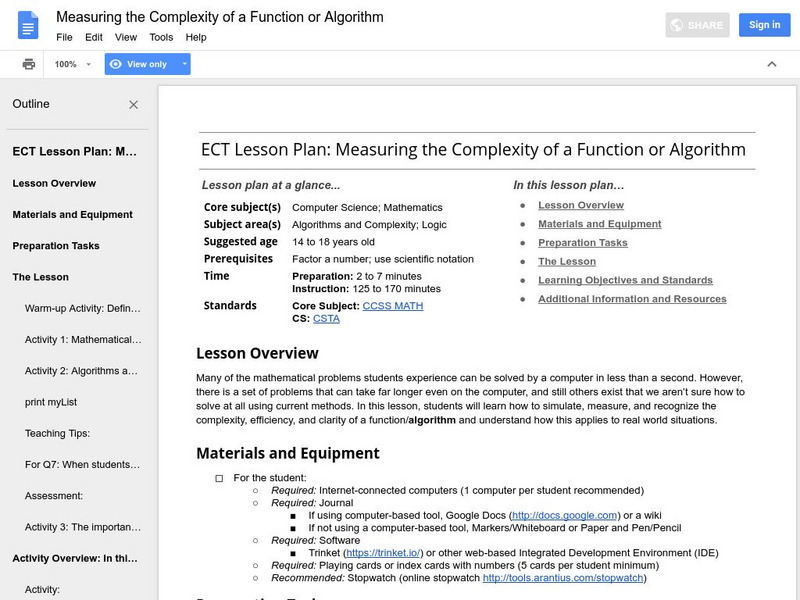
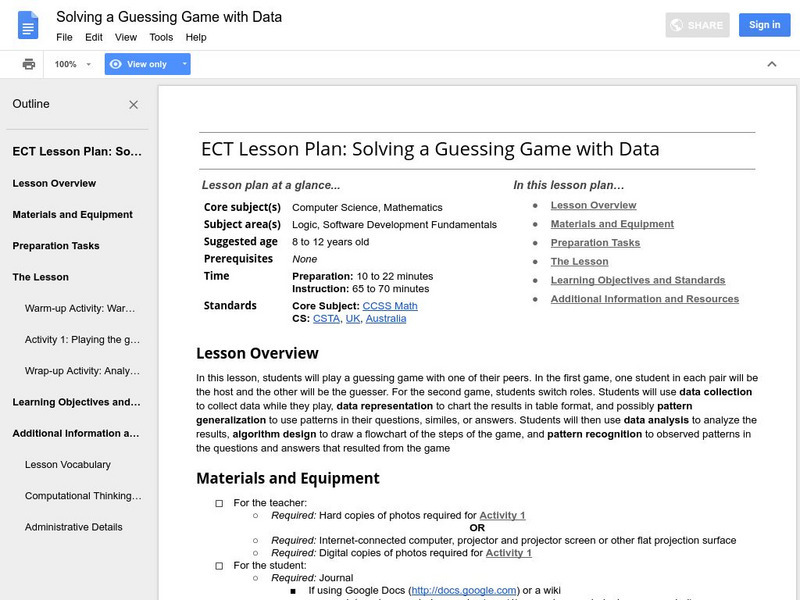
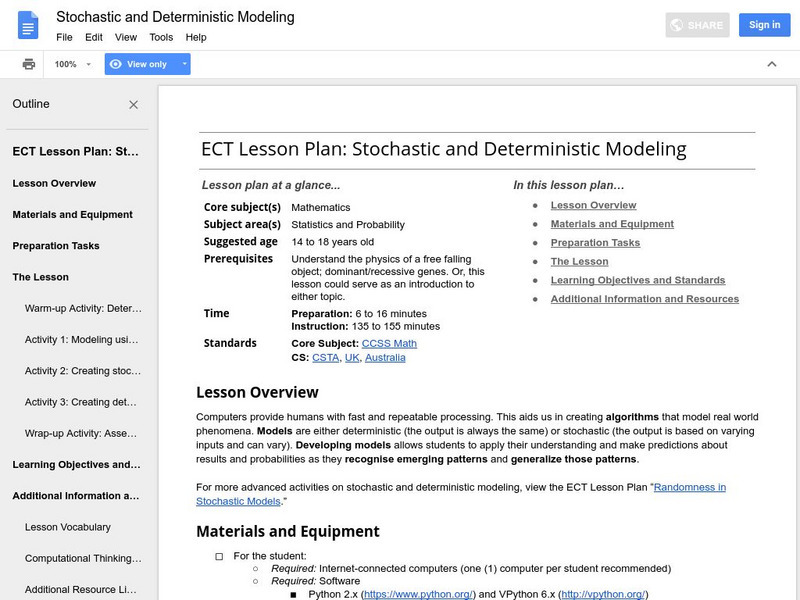
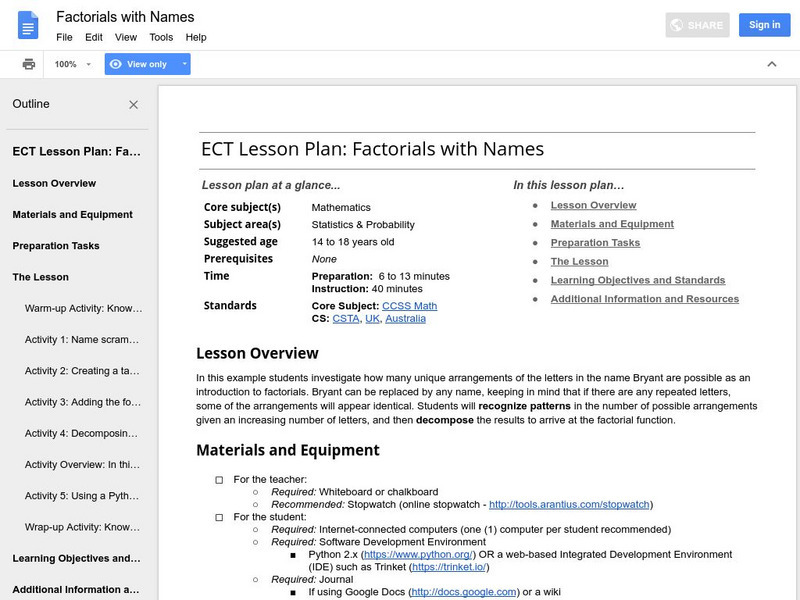
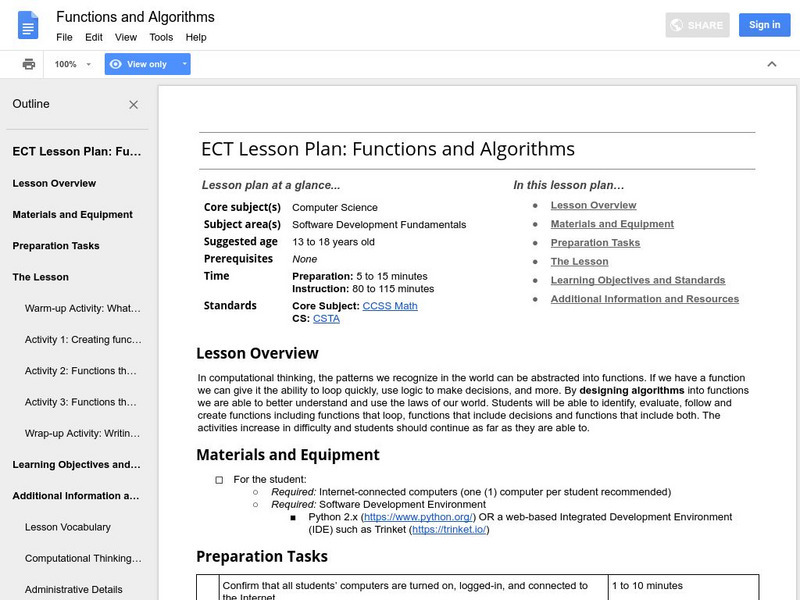
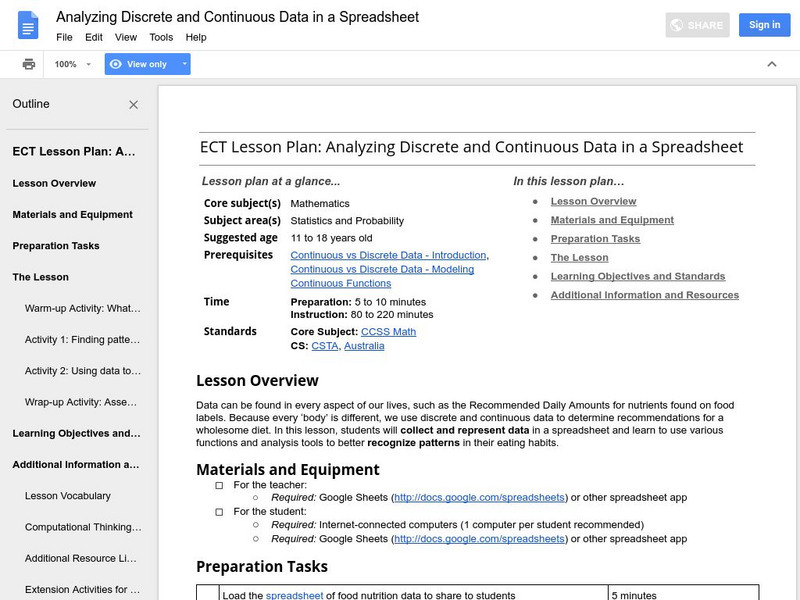
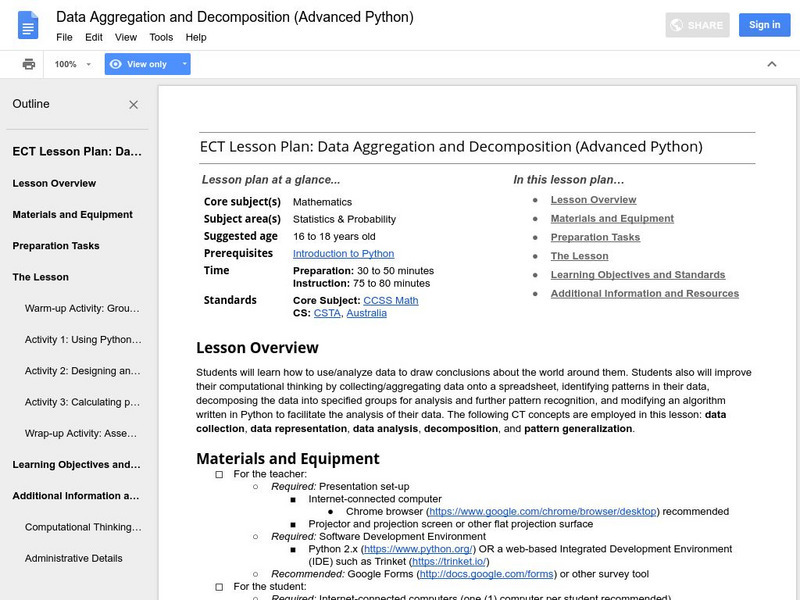
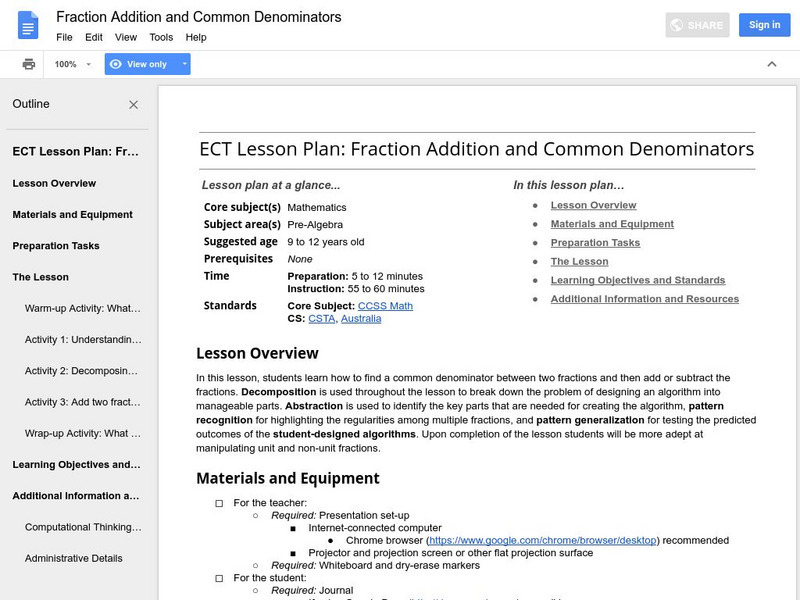


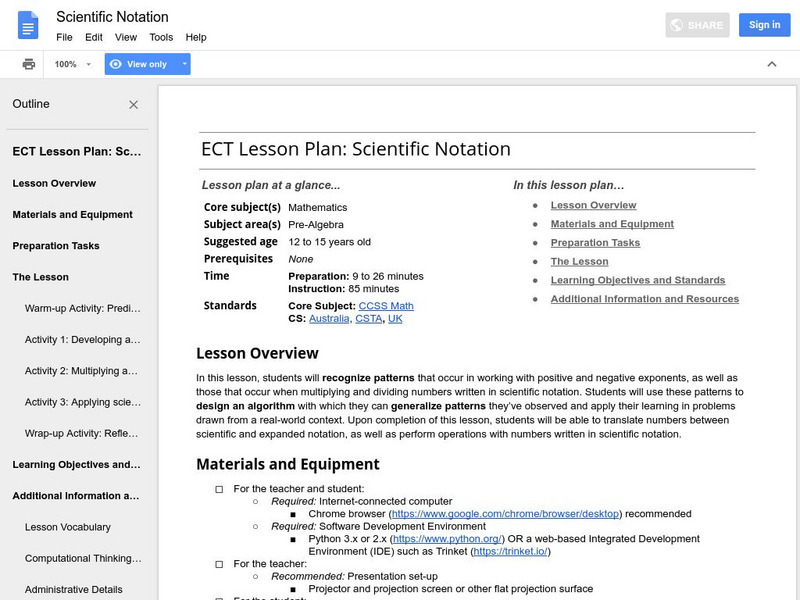
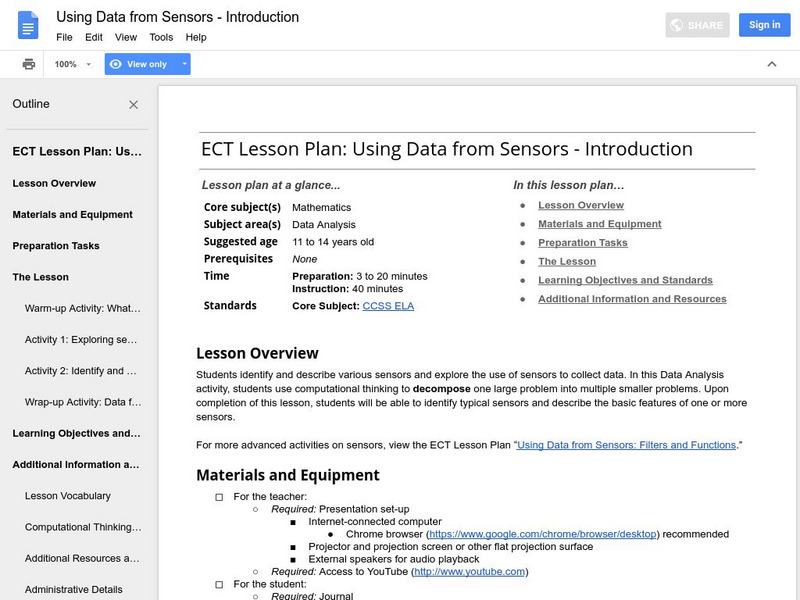
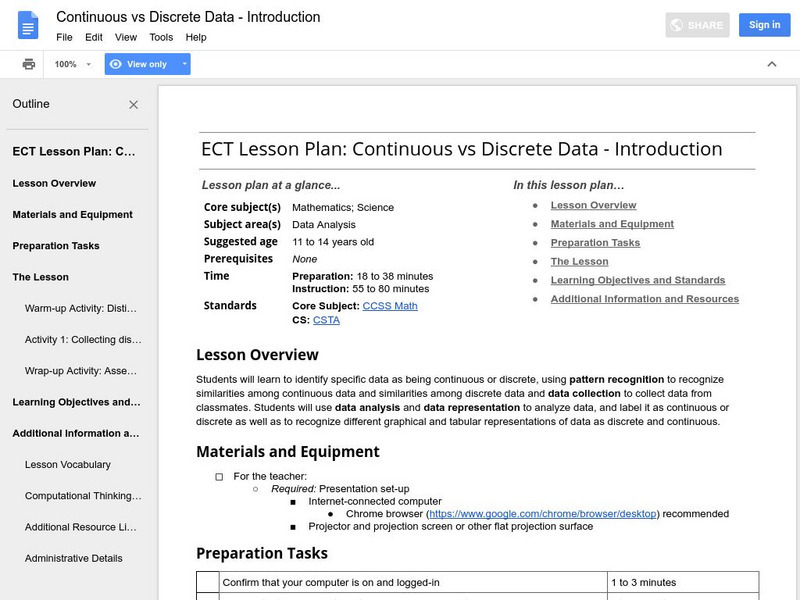
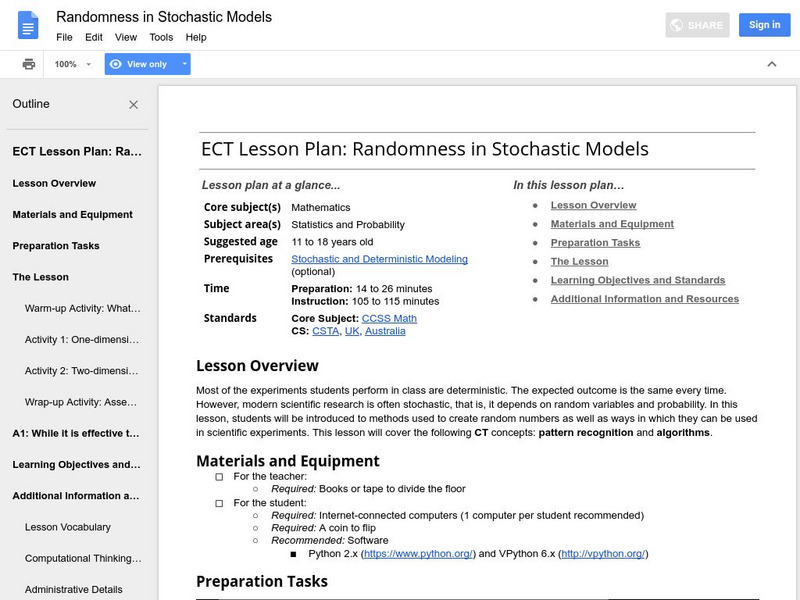


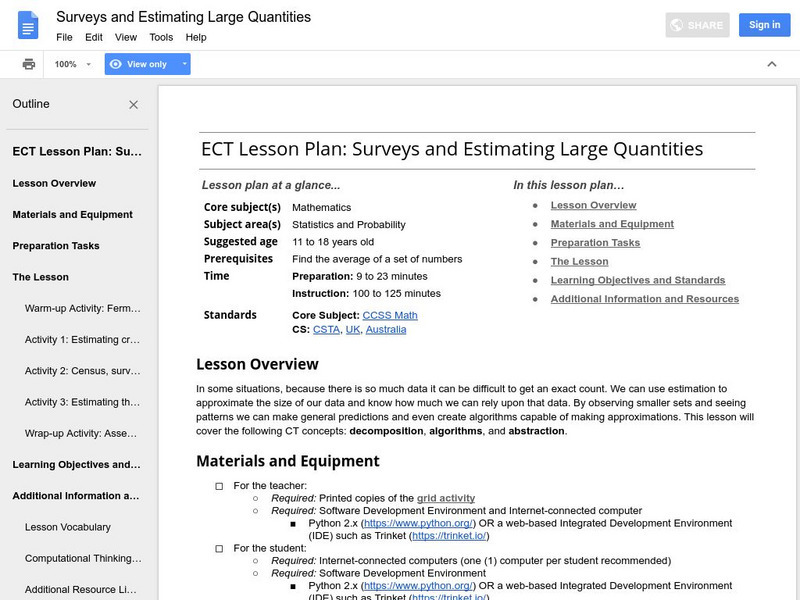

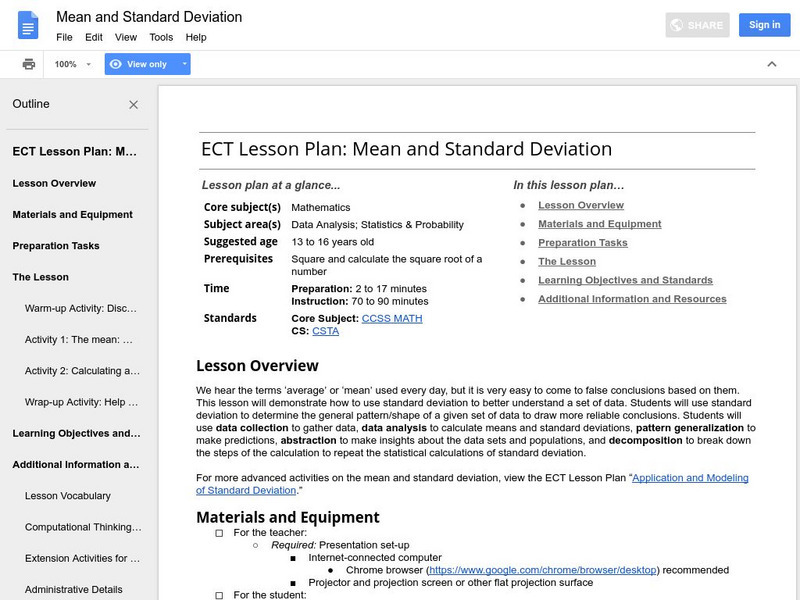
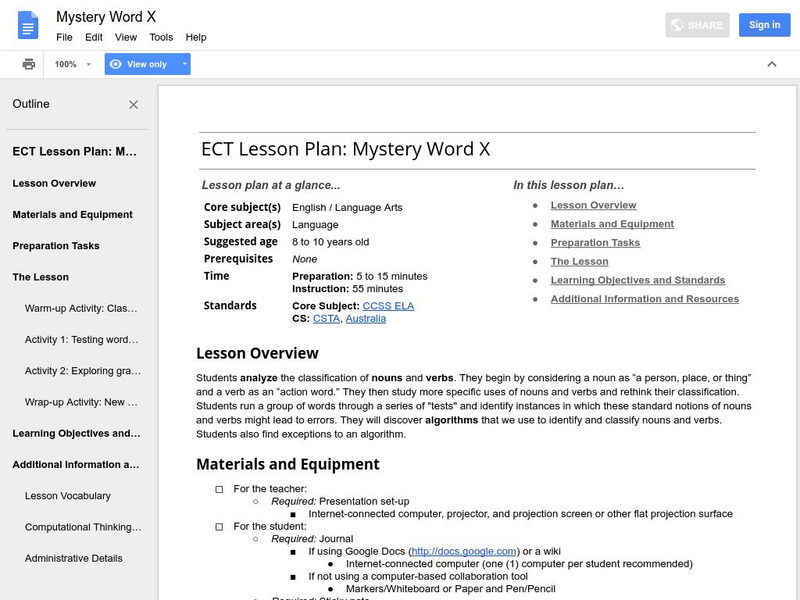
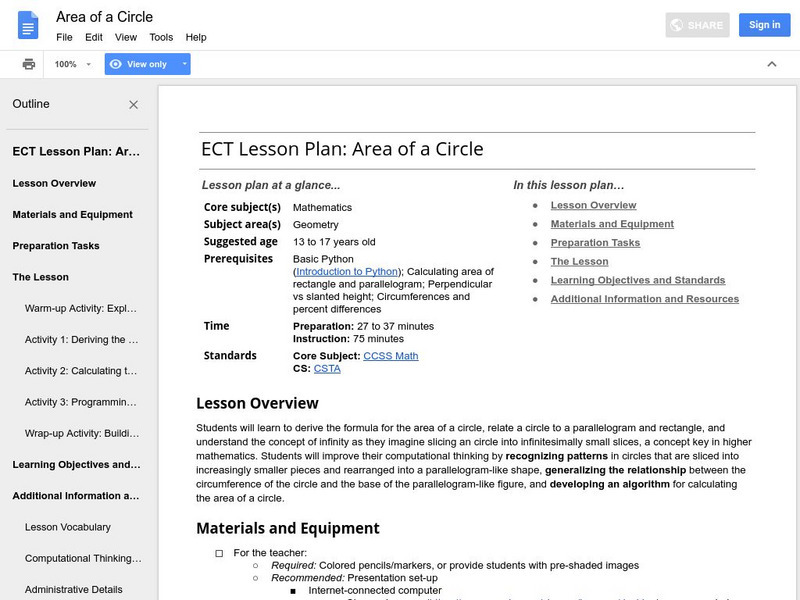
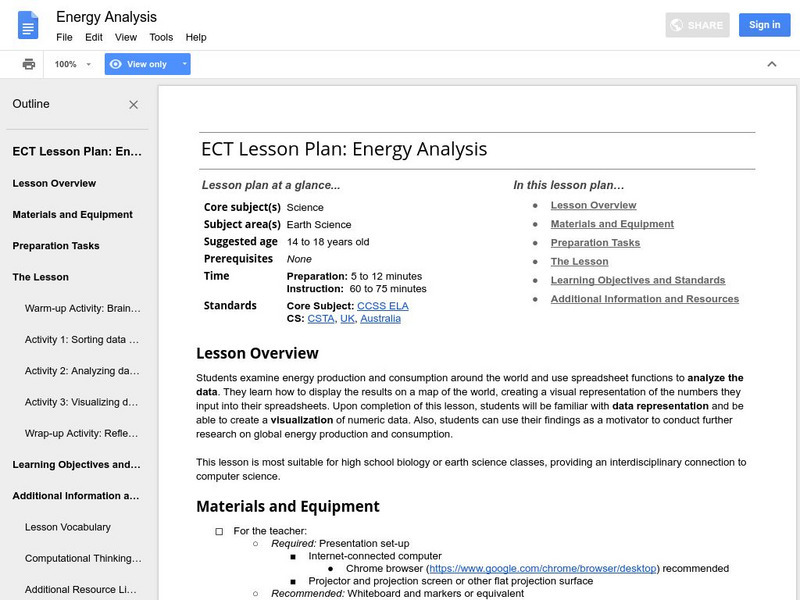
![The Engineering Place: Balloon Flinking [Pdf] Lesson Plan The Engineering Place: Balloon Flinking [Pdf] Lesson Plan](https://content.lessonplanet.com/knovation/original/172615-2de503a48a3b9f1faaa61527a0b2e7e4.jpg?1661554798)
